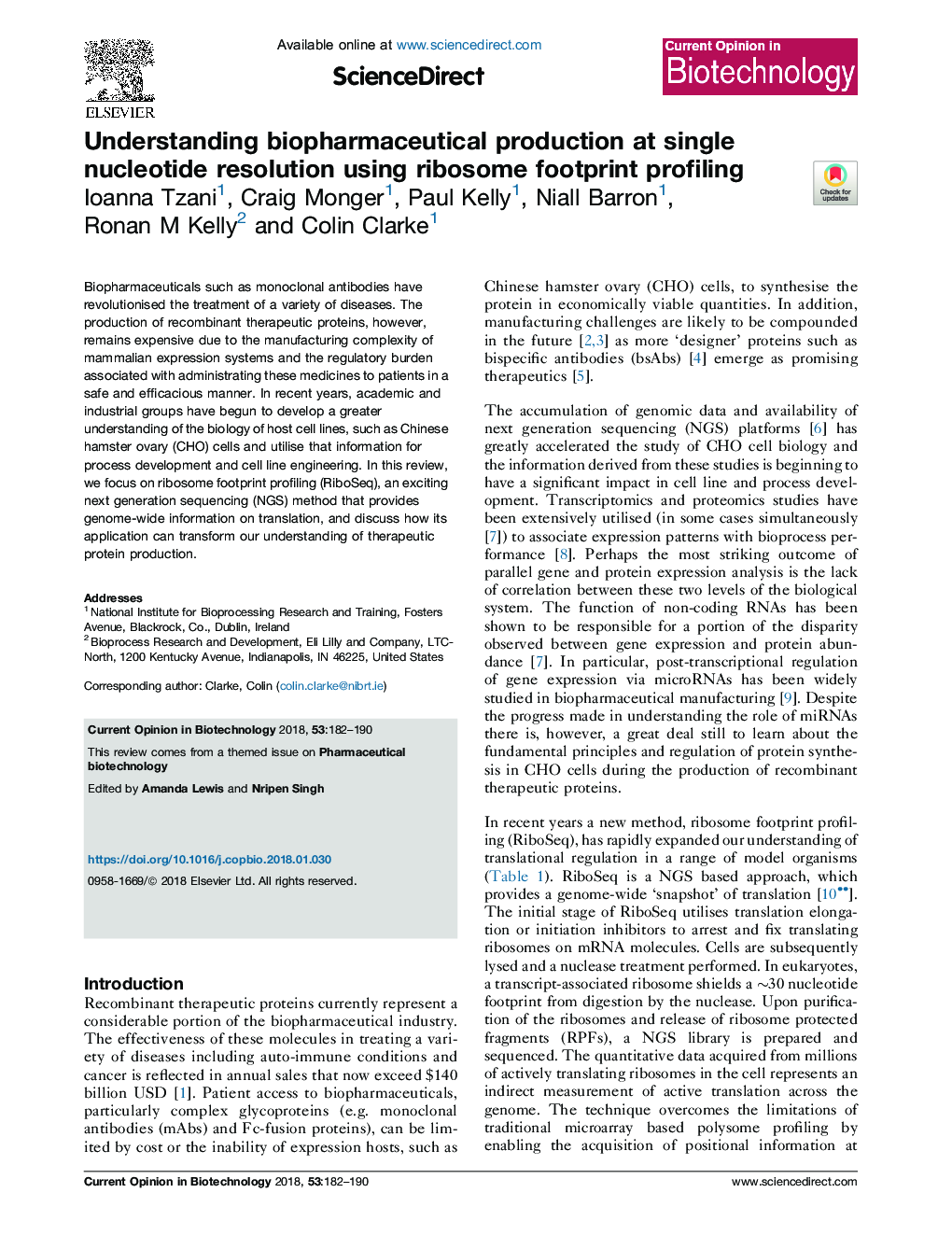| Article ID | Journal | Published Year | Pages | File Type |
|---|---|---|---|---|
| 6487263 | Current Opinion in Biotechnology | 2018 | 9 Pages |
Abstract
Biopharmaceuticals such as monoclonal antibodies have revolutionised the treatment of a variety of diseases. The production of recombinant therapeutic proteins, however, remains expensive due to the manufacturing complexity of mammalian expression systems and the regulatory burden associated with administrating these medicines to patients in a safe and efficacious manner. In recent years, academic and industrial groups have begun to develop a greater understanding of the biology of host cell lines, such as Chinese hamster ovary (CHO) cells and utilise that information for process development and cell line engineering. In this review, we focus on ribosome footprint profiling (RiboSeq), an exciting next generation sequencing (NGS) method that provides genome-wide information on translation, and discuss how its application can transform our understanding of therapeutic protein production.
Related Topics
Physical Sciences and Engineering
Chemical Engineering
Bioengineering
Authors
Ioanna Tzani, Craig Monger, Paul Kelly, Niall Barron, Ronan M Kelly, Colin Clarke,
